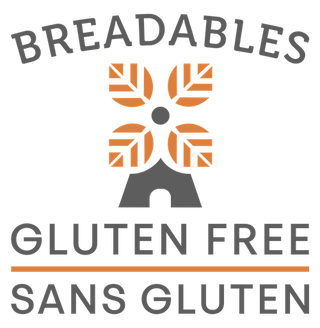Nutrition
Three Benefits of Psyllium Husk you Can’t Ignore
Most people have heard that adding enough fiber in your diet is useful for overall health. Consistent with Mayo Clinic, a diet high in fiber can help improve constipation and general bowel health, balances blood glucose levels, lowers cholesterol, and usually assist you live longer.
A diet rich in some of the naturally gluten free grains such as chickpea, brown rice and psyllium husk can offer you enough dietary fiber to reap these benefits. But if you’d wish to supplement with extra fiber, psyllium husk seems to be the best option. This text will cover what psyllium husk is, why it’s beneficial, and ways to include it into your diet.
Soluble Versus Insoluble Fiber
Fiber can be divided into two different categories: soluble and insoluble. Both are beneficial to human health, and most whole plant foods contain a number of each. Psyllium husk, however, contains primarily soluble fiber.
Soluble fiber dissolves in water and becomes a gel-like substance because it goes through the alimentary canal. We don’t digest soluble fiber, but our intestinal bacteria can digest it! Due to this, soluble fiber is considered as prebiotic – meaning it nurtures the beneficial bacteria that structure the human gut microbiome.
On the other hand, insoluble fiber isn’t dissolvable in water and proceeds intact through the gut. We can’t digest insoluble fiber, and neither can bacteria – so its primary benefits are relieving constipation and improving bowel health.
Looking deeper into Psyllium Husk
Psyllium husk is usually sold in bulk or capsules as a fiber supplement (capsules being my last option as it may contain processed ingredients). It’s made up of the husks of seeds from the Plantago ovata plant, which is a shrub native to Western and Southern Asia. Currently, India is the largest grower of Plantago ovata plants and produces 85% of the world’s psyllium husk.
The soluble fiber in psyllium husks absorbs water because it passes through the gastrointestinal system, and becomes a kind of gel-like, viscous substance. Psyllium husk acts as a mild laxative, adding bulk to stool and making it easier to pass. But relieving constipation isn’t psyllium husk’s only benefit.
Psyllium’s 3 Benefits
1. It Improves Microbiota, especially if you’re constipated.
A 2019 study published in the International Journal of Molecular Sciences took a glance at how psyllium husk affects the intestinal microbial community of constipated versus healthy subjects. The study used data from two separate, previous clinical trials. The trials noted increases in various beneficial intestinal bacteria in both groups after seven days of taking psyllium husk. However, there was a way more significant increase in beneficial bacteria within the group of individuals who were constipated.
2. It Improves blood glucose Levels and Satiety.
Fiber, especially soluble fiber, can lower blood glucose and insulin levels by delaying food digestion. Fiber also can assist you feel satiated after a meal, so it’d benefit those that want to eat a touch less to reduce. Psyllium husk is particularly good for this, as it’s gel-like consistency within the gut slows digestion. Take psyllium with food, if you’re trying to find these effects.
3. It Lowers Cholesterol Levels.
Psyllium husk fiber can bind to fats and bile acids within the alimentary canal, which are then excreted. This prompts the liver to make more bile acids. so as to try to this, the liver uses stored cholesterol, thereby decreasing overall cholesterol within the body.
How Much Psyllium Husk do you have to Take?
Talk with your doctor about the proper dosage of psyllium husk for you, especially if you’ve got specific health concerns you would like to deal with by increasing fiber intake.
Be sure to ask your doctor about psyllium’s possible interactions with any medications you’re taking. most are different. Take time to experiment and find what works.
Ways to include Psyllium Husk into Your Diet
You can buy psyllium in capsules, and take whatever amount works for you daily this manner. you’ll also pip out in bulk powder form. There are some ways to include psyllium into foods, and if you’re disgusted popping pills, you’ve got options. Here are two user-friendly ways to incorporate psyllium husk in food:
1. Smoothies
Blend whatever amount of psyllium husk you wish into a fruit or vegetable smoothie. The psyllium will bulk up the smoothie, especially if you let it sit before drinking. If anything, psyllium adds a rather nutty flavor, which doesn’t tend to overwhelm the smoothie.
2. Bake (my favorite as I prefer Gluten Free Roti or Wrap in my daily diet)
Psyllium husks is an important ingredient of Breadables Gluten Free Authentic or Wholemeal Flour. Others who used Breadables flour noted significant improvement in their digestion,
There are other flours in the market that do claim to have psyllium husk added but unfortunately presence of gluten in those flours make it impossible to use by gluten-intolerant customers.


0 comments